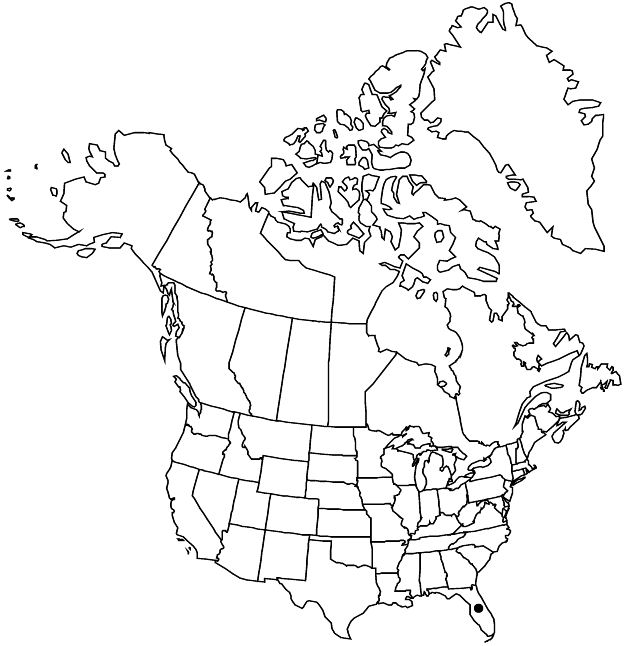Euphorbia rosescens
Lundellia 5: 71, fig. 4. 2002.
Herbs, perennial, with thickened rootstock. Stems erect or ascending, 15–45 cm. Leaves: petiole indistinct, blade narrowly elliptic, elliptic, narrowly oblong, or obovate, 25–55 × 5–21 mm, thick and fleshy, base attenuate, apex acute or mucronulate; only midvein evident. Cyathial arrangement: terminal pleiochasial branches 3, 7–16 cm, 4–7 times 2-branched; pleiochasial bracts ovate to oblong, 17–31 × 13–14 mm, margins entire, apex acute, often also mucronulate; dichasial bracts ovate or lanceolate, 6–18 × 8–12 mm, margins entire, apex acute, often also mucronate; axillary cymose branches 1–2. Cyathia: peduncle 3.9–6.8 mm. Involucre obconic to campanulate, 2.4–3.6 × 2.5–3.6 mm, lobes ovate to oblong, 0.7–1 mm, ciliate; glands green to yellow, oblong or trapezoidal, 0.9–1.7 × 1.9–2.5 mm, distal margins crenulate-erose. Staminate flowers 25. Pistillate flowers: mature gynophore not seen, styles connate 1/2 length, 3.3–3.6 mm. Mature capsules not seen. Seeds not seen.
Phenology: Flowering and fruiting spring–summer, rarely fall.
Habitat: Xeric oak and pine scrub, mostly on white sands, disturbed habitats.
Elevation: 20–50 m.
Discussion
Euphorbia rosescens is a narrow-endemic, gap-specialist known only from the southern portion of the Lake Wales Ridge in Highlands County. Based on leaf characteristics, it appears to be most similar to E. telephioides.
Selected References
None.
